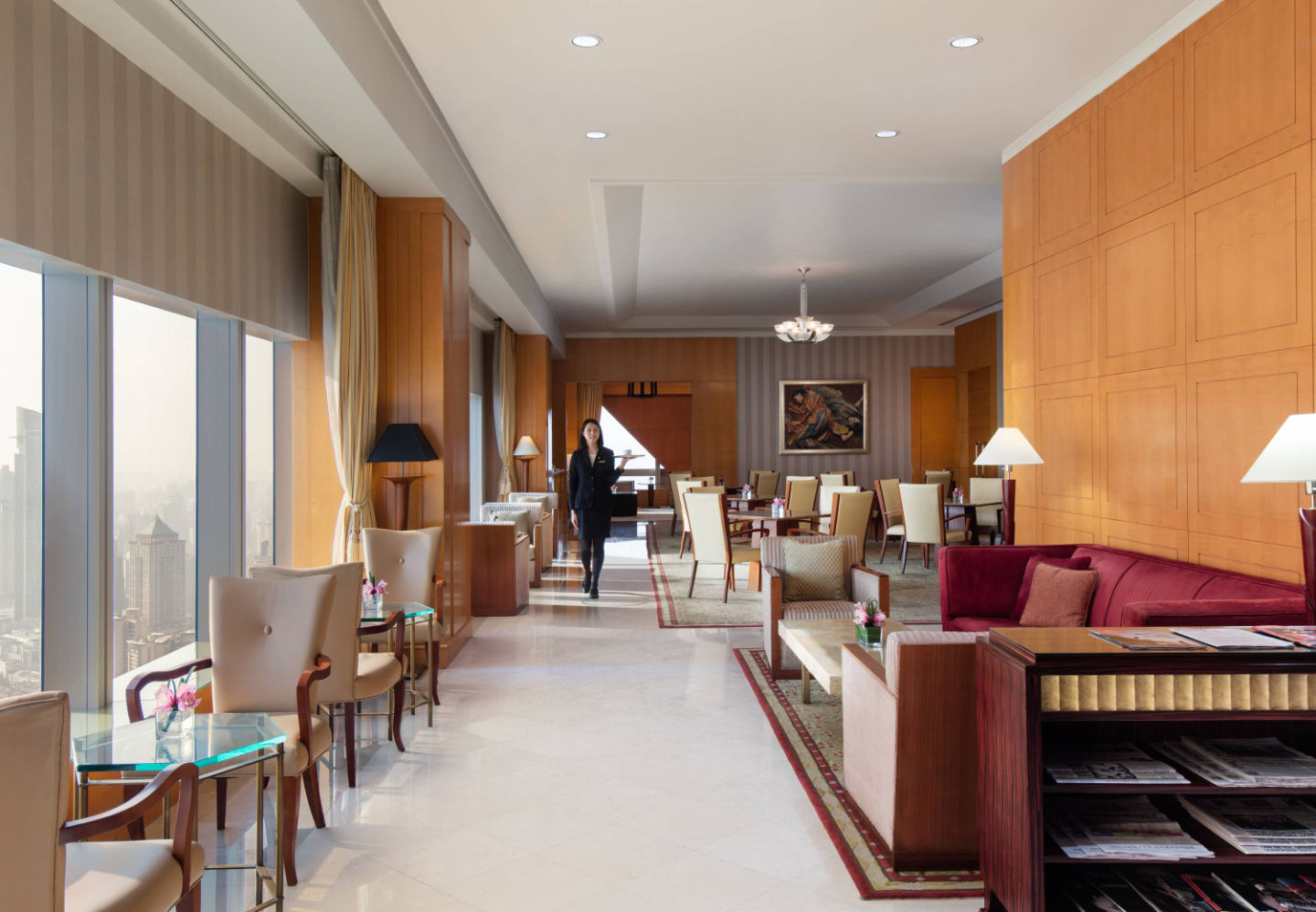News and notes from around the interweb:
- Australia’s Competition and Consumer Commission is focusing on unfair airline adhesion contracts and looking to deal with too-high change penalties and misleading statements like non-refundable which isn’t true when airlines fail to perform. Qantas is taking a defiant stance while Virgin Australia is publicly ‘welcoming’ of the conversation.
- Air France’s Joon pretends to be all about appealing to millennials. So why are they replacing mainline service with Joon on Paris – Tehran?
- Marriott’s website and mobile app turned off in Shanghai for a week because they sent out a survey that listed Taiwan and Tibet separately as countries. Marriott has apologized, and is required to “conduct a thorough check on all contents it posted on its website and online application to prevent anything similar.” (HT: Doctor of Credit)

Executive Lounge, JW Marriott Shanghai at Tomorrow Square, Credit: Marriott - Asiana will only let their own passengers access their lounges using Priority Pass. A new change that went into effect January 1. Not a huge deal though because everywhere in South Korea other than Seoul where Asiana has lounges Priority Pass provides access to Korean Air lounges (and Priority Pass has lounges at Seoul Incheon as well).
- Former Spirit Airlines CEO Ben Baldanza thinks Basic Economy fares are good for both legacy airlines and ultra low cost carriers
- Unwittingly ordering counterfeit goods on Amazon could get you denied for Global Entry (HT: Joe K.)
- Saying goodbye to Virgin America.


I can see why Spirit’s board fired Baldanza. His grasp of economics is somewhat incomplete.
Let’s say Spirit offers a passenger a $49 fare, and American matches that with a $49 basic economy fare. American also offers that customer a $79 regular coach fare. The passenger considers the options, figures he’s better off flying American than Spirit for $49, but decides in the end to give American the extra $30 for a regular carry-on and the incidentals. Had he booked with Spirit, he might have bought the carry-on bag upsell and also given them $79. Let’s assume that due to lower cost, Spirit would make $15 off this passenger, and now American makes $5 (American, of course, is making most of their money off other, higher paying passengers).
In the days before Basic Economy, American might have matched this fare but, at $49 and no upsell potential, it would have lost money. If it didn’t match the fare, the customer would have gone with Spirit, and probably given them $79.
Please explain to me how Spirit is better off with American having Basic Economy.
Talk about burying the lede… Harper Reed, the man who was denied Global Entry, isn’t just “an engineer at Paypal.” He was the Chief Technology Officer for Barack Obama’s 2012 re-election campaign. He was one of the most high-profile officials in the campaign; there were dozens of profiles written about him and the digital team he led. It seems noteworthy that he, of all people, would be denied service by the TSA after a change in administration. I’m shocked that the author of that story didn’t note that in his article.
@Ryan… Why would someone pay full price for a name brand luggage from an Amazon 3rd party provider shipped internationally? Those are the nearly mutually exclusive events. He either got the luggage at a very good price and knew or should have known it was fake, or he would have bought it from Neiman Marcus for $700 in the first place.
I doubt that CTO’s of election committees from 6 years ago are targeted by TSA or state department for travel restrictions.